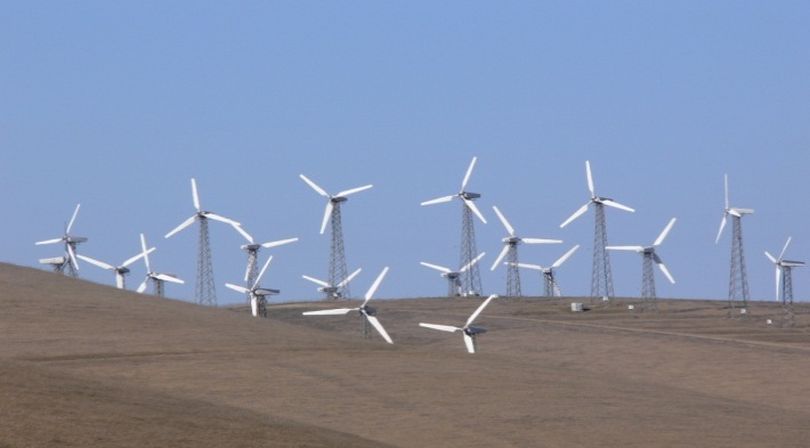Wind energy company prosecuted for killing birds

WILDLIFE -- A wind energy company has agreed to pay about $1 million in fines and mitigation actions in the deaths of 14 golden eagles and 149 other protected birds in Wyoming. The American Bird Conservancy says its the first prosecution of a wind company in connection with bird deaths.
The Department of Justice on Friday announced a settlement on the prosecution of Duke Energy’s wind developments.
“Wind energy is not green if it is killing hundreds of thousands of birds," said said George Fenwick, ABC president. "We are pro-wind and pro-alternative energy, but development needs to be Bird Smart. The unfortunate reality is that the flagrant violations of the law seen in this case are widespread.”
The enforcement action is the first time the government has drawn a line in the sand, said Michael Hutchins, coordinator of ABC’s National Bird Smart Wind Energy Campaign.
“The boundaries for the wind industry are voluntary, meaning that companies have been able to pay lip service to bird protection laws and then largely do what they want," he said. Poorly sited wind projects exist or are being planned that clearly ignore the advice of federal and state biologists who have few, if any, means of preventing them from going ahead.”
The charges stem from the discovery of 14 golden eagles and 149 other protected birds, including hawks, blackbirds, larks, wrens and sparrows by the company at its “Campbell Hill” and “Top of the World” wind projects in Converse County between 2009 and 2013. The two wind projects are comprised of 176 large wind turbines sited on private agricultural land.
